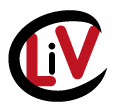EST CONGRESS 2019
LIVING TRANSLATION – PEOPLE, PROCESSES, PRODUCTS
Stellenbosch (South Africa), 9-13 September 2019
CALL FOR PANEL PROPOSALS
In a multilingual and multicultural world shaped by mediated interactions between people from diverse national, linguistic and cultural backgrounds, translation in all its forms and interfaces is more prevalent than ever. In Africa, as in the rest of the world, translation is intrinsically linked with its environment: translation in all its variety is not only the object of an academic discipline, it is a fact of life. This reality is living, shifting and vibrant, like the academic discipline of translation studies, which has shown its flexibility over the past decades. The interaction of translation studies with fields such as linguistics, literary studies and cultural studies is obvious. At the less traditional end of the spectrum, publications on translation and the Anthropocene and the era of big data point to a myriad of extremely fertile research areas.
The theme of ‘Living Translation’ includes current topics, such as the role of translation in the lived experience of the Other, in fake news, mass communication, power and ideology, oral histories, the hegemony of English, accessibility, inclusivity, education, gender and transformation, since these practices all imply, implicate or employ translation in some way. It is the aim of the 9th EST Congress to explore these and other pertinent matters of translation in real life, from various theoretical and analytical points of departure. The three sub-headings, “People, Processes, Products”, are intended to stimulate robust discussions as we map our way forward as a living discipline.
As in earlier EST congresses, the 9th EST Congress will mainly be constructed around thematic panels. We welcome proposals for panels related to the general conference theme from a broad view of translation studies. Panels can adopt various (inter)disciplinary, methodological, conceptual, professional, historical or geographical approaches relating to the concept or experience of the conference theme Living Translation.
A panel proposal should consist of:
– names and affiliations of the panel conveners (maximum 3)
– a title
– a general description of approx. 300 words, also indicating possible subtopics and approaches
– an essential bibliography (max. 5 publications)
Please send panel proposals by no later than 15 July 2018 to both:
– Ilse Feinauer, Chair of the Organizing Committee (aef@sun.ac.za), and
– Luc van Doorslaer, Chair of the Scientific Committee (luc.vandoorslaer@kuleuven.be)
Notification of panel acceptance will be given by 1 October 2018. The themes of the accepted panels will be published and open for submissions around the end of October.
